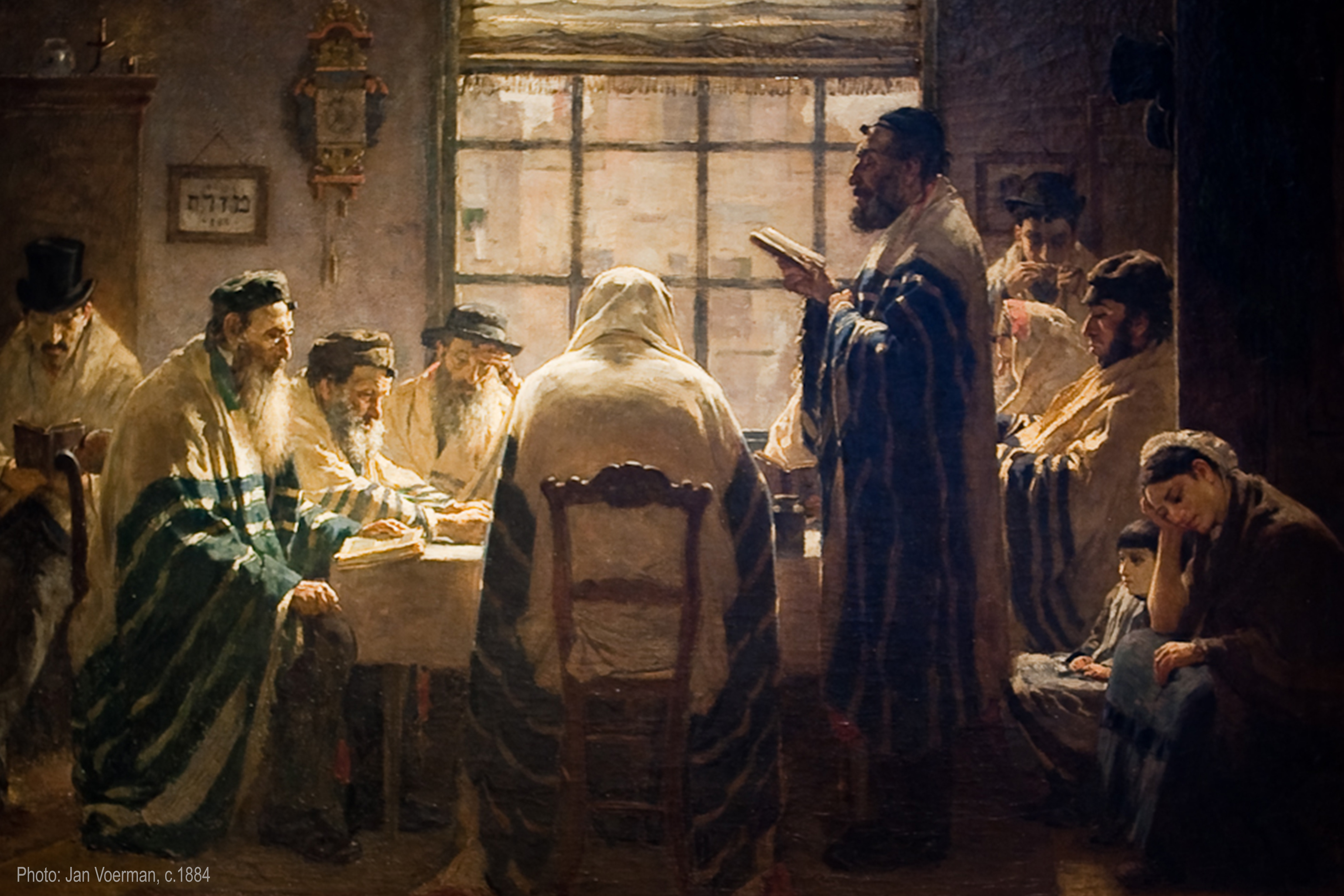Tisha B'Av: A Time to Weepഉദാഹരണം


Customs and Rituals Observed Today
On the ninth day of Av, we observe a 25-hour fast and we mourn for the loss of our Holy Temples and for all other tragedies, both personal and collective. However, the day doesn’t just come in an instant; it essentially begins three weeks earlier on the 17th day of the Hebrew month of Tammuz. On that day in history, Jerusalem fell, paving the way for the destruction of the Temple, which occurred exactly three weeks later.
Like Tisha B’Av, the 17th of Tammuz has also seen many Jewish catastrophes and is considered an ominous day. The entire three-week period leading up to Tisha B’Av is known as “between the straits,” a difficult and historically dangerous time for the Jews. The name is taken from the Book of Lamentations, which reads, “All her persecutors overtook her between the straits” (1:3).
On the 17th of Tammuz, we observe a fast from dawn until dusk, ushering in the three weeks of mourning. During this time period, known as the Three Weeks, we minimize enjoyment and celebration. Among our customs, we refrain from scheduling weddings, listening to live music, shaving, or getting haircuts. When the month of Av begins, we decrease our joy even further. For nine days, the custom is to refrain from pleasures, including drinking wine, eating meat, wearing freshly laundered clothing, and bathing in warm water for the sole purpose of enjoyment.
Then, just before the sun sets on the eighth day of Av, as Tisha B’Av is about to begin, we end our pre-fast meal with a traditional meal of mourning consisting of bread and a hard-boiled egg dipped in ashes. Sundown marks the official start of Tisha B'Av.
Until sunset the next day, we do not eat, drink, wear leather shoes, apply soothing oils, or engage in marital relations. Many observe a custom to sleep on the floor or without a pillow. Until midday, we sit on low chairs or on the floor, just as one does when mourning the loss of a close relative.
Both at night and in the morning of Tisha B’Av, Jews gather in the synagogue to read the book of Lamentations out loud and recite kinot, elegies that have been written throughout the generations recounting the many tragedies that have befallen the Jewish people. The day is filled entirely with introspection, mourning, and prayer.
Once Tisha B’Av has concluded, we get up and embark on a new path. At first, we still observe the restraints of the Three Weeks for one more day because the Temple burnt through the 10th of Av, but then all constraints are removed. On the following Sabbath, we read from the Book of Isaiah, chapter 40, beginning with, “Comfort, comfort my people, says your God.” The time of healing and hope has begun.
തിരുവെഴുത്ത്
ഈ പദ്ധതിയെക്കുറിച്ച്

Tisha B’Av (the Fast of the Ninth of Av) is the darkest day on the Jewish calendar, a day of communal mourning to commemorate the many tragedies that have befallen the Jewish people which have occurred on this very day. In this reading plan, we'll look at the ancient roots of this somber day and how it has reverberated throughout the history of The Chosen People.
More
ബന്ധപ്പെട്ട പദ്ധതികൾ

നമ്മുടെ ദൈവിക വിധി അവകാശപ്പെടുന്നു

വർഷാവസാനം പുനഃക്രമീകരിക്കുന്നു - പ്രാർത്ഥനയും ഉപവാസവും

ദൈവത്തിൻ്റെ ഉദ്ദേശ്യപ്രകാരം ജീവിക്കുകയും അവൻ്റെ കൃപയെ സ്വീകരിക്കുകയും ചെയ്യുക

വെല്ലുവിളി നിറഞ്ഞ ലോകത്ത് ഹൃദയത്തെ സംരക്ഷിക്കുന്നു

എന്നോട് കല്പിയ്ക്കുക - സീറോ കോൺഫറൻസ്

ബൈബിൾ മനഃപാഠ വാക്യങ്ങൾ (പുതിയ നിയമം)

ഈസ്റ്റർ ക്രൂശാണ് - 4 ദിന വീഡിയോ പ്ലാൻ

ഈസ്റ്റർ ക്രൂശാണ് - 8 ദിന വീഡിയോ പ്ലാൻ

പരിശുദ്ധാത്മാവിലുള്ള ആത്മീയ അവബോധം
